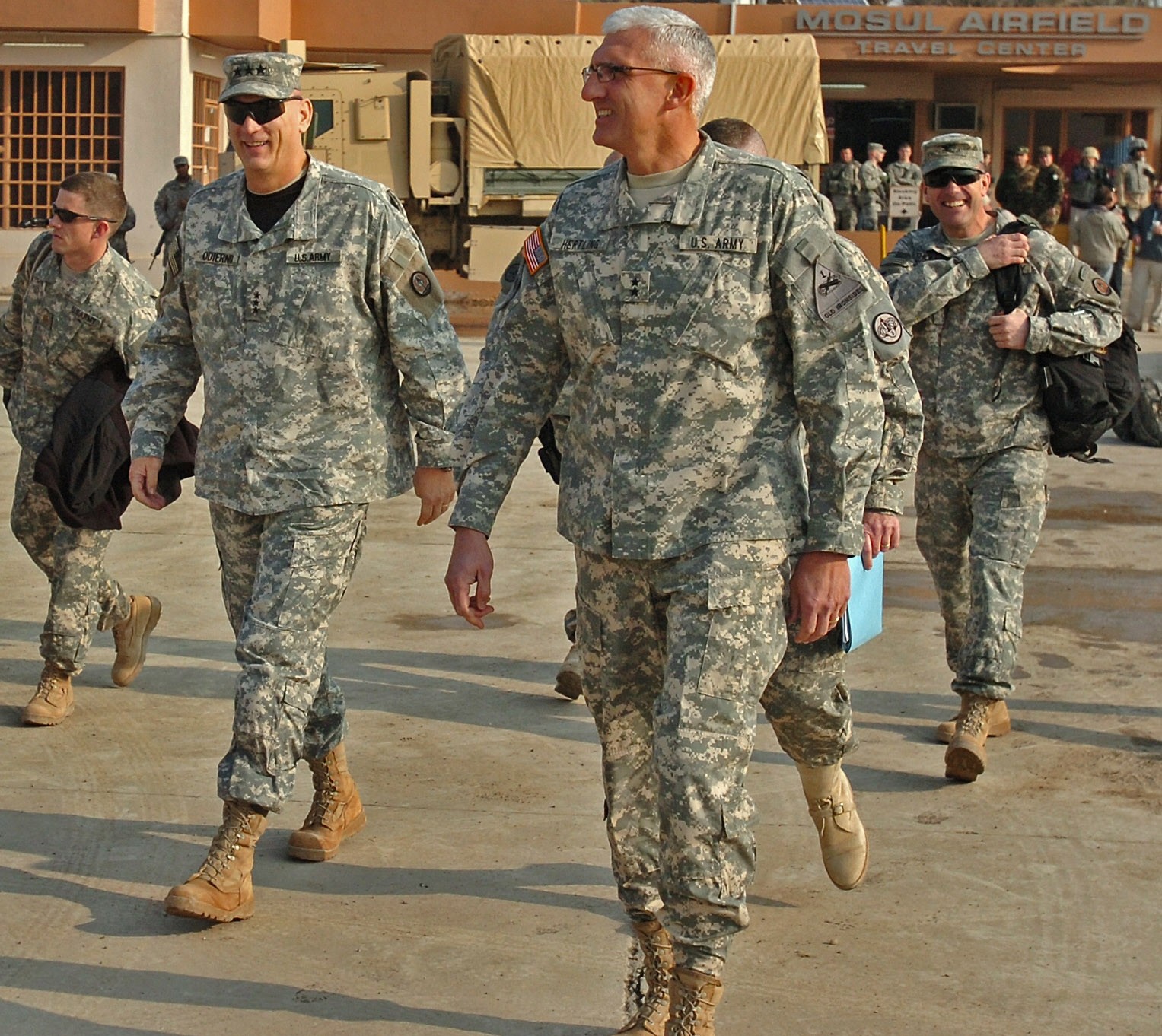
HEIDELBERG, Germany (Feb. 13, 2008) -- U.S. and Iraqi forces are successfully conducting operations against al-Qaida terrorists in the Iraq's northern provinces, said Maj. Gen. Mark Hertling, commander of 1st Armored Division and Multi-National Division - North during a Feb. 11 news conference.
Talking with reporters in the Pentagon during his third video teleconference from Iraq, Herting said the provinces of Diyala, Salahuddin, Nineveh and Kirkuk are safer today than they were a month ago.
"Diyala is much safer today than it was a month ago. Citizens are less afraid to go out on the street, and markets are opening," Hertling said. "Al-Qaida has gone to ground. We are hunting them out, where they have gone to ground."
"But there is still much work to be done to bring normalcy to Diyala Province," Hertling added.
Hertling said much of that recent success is due to the growing capabilities of Iraqi security forces and the establishment of enduring security bases throughout the provinces.
From late December through Feb. 10, the 1st Armored Division-led Task Force Iron and its Iraqi partners conducted 74 company-level and higher echelon operations under the banner of Operation Iron Harvest, he said. As a result more than 70 insurgent leaders have been killed and more than 430 weapons caches have been discovered.
"We have found in some of these caches computers which have led us to other cells based on the intelligence we found on the hard drives, and communication devices and DVDs with things like al-Qaida training videos, Hertling said.
During the operation Soldiers also found and destroyed 653 IEDs; 42 booby-trapped houses; 35 car bombs; and three car bomb factories, he said.
"I will report to you tonight that our campaign is on track and we will continue to pursue al-Qaida in our area," Hertling told the reporters. "We may shift our forces soon, but we'll continue to conduct intelligence-driven operations and link our actions with the provincial governments and an increasingly capable government of Iraq as security and economic potential in our four northern provinces improves."
Unable to give precise numbers of insurgents still in the area, Hertling said their overall ranks have decreased and they are no longer in major cities such as Baqubah and Muqdadiyah and few remain in Mosul and Hawija. The insurgents are moving from their urban strongholds and moving into less populated areas and into the desert.
"We're doing exactly what we're trying to do, and that is, make the cities safer for the Iraqi citizens while continuing to target al-Qaida and the other extremist groups," he said, cautioning that the enemy is "still capable of inflicting harm on the Iraqi people."
Coalition forces are also watching nearby international borders, he said.
"It does my heart good to walk the streets of Diyala or Kirkuk or Salahuddin and see people back in the markets and (to) see the young people and the Iraqi citizens beginning to enjoy their freedom," he said.
Hertling credits a major part of the task force's success to the Iraqi Army's 2nd and 3rd Divisions.
"I just want to make sure that people know that there are people over here who really believe in what they're doing," Hertling said in wrapping up the interview. "They're seeing a difference every day in the Iraqi people; the Iraqi government is beginning to become more capable, and it is an honor to serve over here with these great Americans, as well as the great Iraqi security forces, which have become our brothers."
The task force's success has not come without cost, he said. In January, 21 U.S. Soldiers from Task Force Iron were killed.
The task force consists of Soldiers from the Wiesbaden, Germany-based Headquarters, 1st Armored Division, as well as members of the 1st Brigade, 10th Mountain Division; 1st Brigade, 101st Airborne Division; 3rd Brigade, 1st Cavalry Division; 3rd Armored Cavalry Regiment; 4th Stryker Brigade Combat Team, 2nd Infantry Division; 1st Combat Aviation Brigade, 1st Infantry Division; and the 111th Engineer Brigade.

Social Sharing